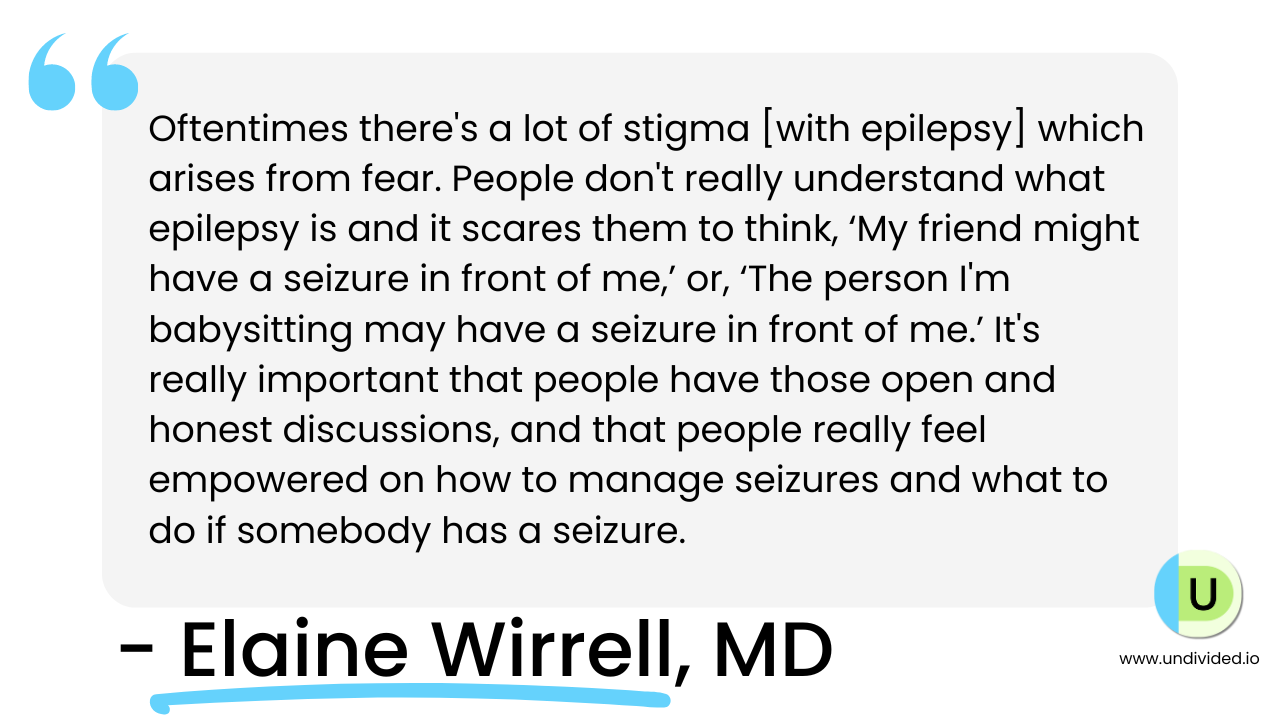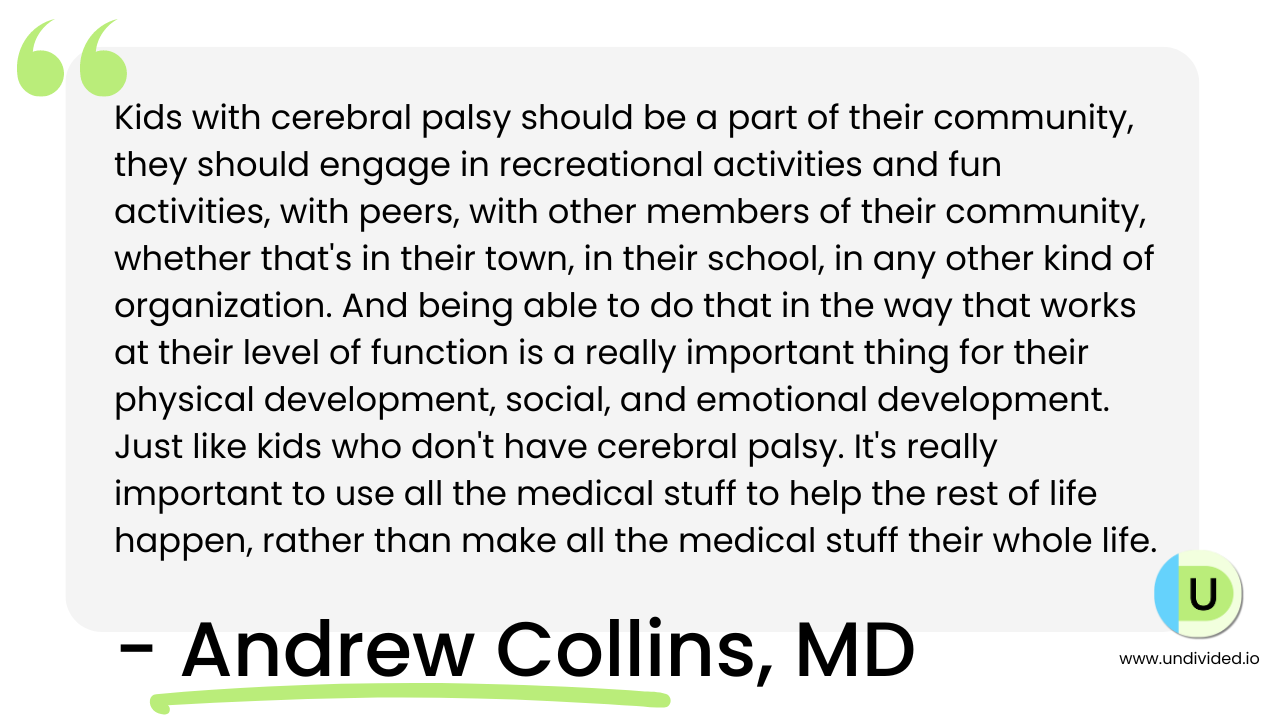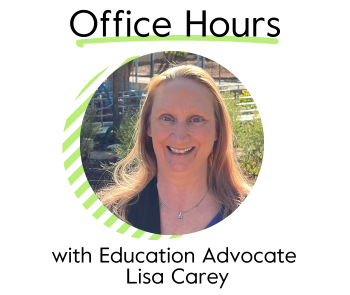Neurological disorders, which affect the way the brain or nervous system functions, present with a unique set of symptoms and challenges that impact areas such as speech, mobility, vision, and behavior. It’s natural for parents’ anxiety to rise when faced with navigating and supporting your child through diagnosis, treatment options, and ensuring they’re not only safe but also thriving in and out of school. Whether your child has a new diagnosis of epilepsy, cerebral palsy, or they’ve been co-occurring diagnoses for years, you know we often need the support of providers, therapists, and specialists we trust, not to mention the insights and support of other parents who know exactly how we feel.
As parent Lelah Coppedge, RN, whose son Jack has CP, tells Undivided, “People can’t figure out how to be around him (my son) and talk to him. And I think that goes for a lot of people with disabilities… The world just doesn’t really know what to do or how to talk to them. But he’s highly intelligent. He’s hilarious. He’s so brave. He is the hardest worker. He never gives up. And I think it’s really important to teach that to these kids, too… We have to teach them how to start taking their own care into their hands, to be self-directed in their strength, and how to dig deep and to keep on going.”
As parents, we can learn how to encourage, advocate for, and support our kids as they live life and more. Lindsay Crain, head of the content and community teams at Undivided, says, “As a mom to an incredible teenager with CP and epilepsy, I know the fear and stress that can come with watching your child struggle. Hang in there. They are way stronger than they should have to be. Together, let’s get them what they need to thrive.”


Epilepsy is a neurological disorder that causes recurring, unprovoked seizures. But it doesn’t just have one presentation, it affects children at different ages and in different ways — especially when close to 80% of children with epilepsy also have a co-occurring diagnosis, such as ADHD, learning disabilities, depression, anxiety, or autism. Dive into our articles below to learn how and when epilepsy is diagnosed, how to help your child manage seizures (including with surgery), how to keep your child safe, how epilepsy can be eligible for an IEP or a 504 plan, and more.

Cerebral palsy (CP) is the most common motor-related disability in children, affecting approximately 1 in 345 kids. How CP presents in children depends on which part of their brain is impacted, which can include balance, mobility, speech, and vision. Read our articles below to learn about the types of cerebral palsy, how and when CP is diagnosed, recommended treatments (and how to get funding), overcoming stigma and stereotypes, school supports and IEP and 504 accommodations, common therapies, and more.
- Cerebral Palsy (CP) 101
- Common Cerebral Palsy Therapies and Specialists
- Supporting a Child with Cerebral Palsy at Home, at School, and in the Community

One Undivided member shares with us, “I have a hard time describing what a gift [Undivided] actually is. This has been a solo excursion for me for so long, as it is for so many of us, that I didn’t even realize what having some help would feel like! Just to have a network of people, let alone the help that [my Navigator] can provide, is an incredible opportunity.”


On Wednesday, May 15, 12:00-1:00 p.m. PT, Education Advocate Lisa Carey will be available to answer questions about IEPs and special education. Stop by for five minutes or the whole hour to get expert answers and connect with other parents. Bi-weekly Office Hours are virtual Q&A sessions with experts that are open to Undivided members only, so if you’d like to attend, sign up here to begin your free Kickstart!

- How does a student with epilepsy qualify for an IEP or 504 plan? Hear Dr. Pelangka explain the details on YouTube→
- How do you work with a reluctant IEP team to get your child with CP or epilepsy the school supports they need? Education Advocate Lisa Carey has this advice on Instagram→
- This week in our supportive community, parents have shared which doctors they recommend seeing for seizures. Join the discussion in our private Facebook group→
- Kudos to the The National Institutes of Health for designating people with disabilities as a “health disparity population,” expanding access to funding and resources. Read more on our LinkedIn→
- Do you need help coordinating all of your child’s therapies, medical needs, and school supports? A Navigator can give you a personal tour of the many organizational tools in your Undivided binder. Get started→





























